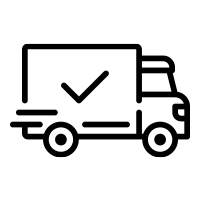What is Logistic Analyst?
Analyze product delivery processes or supply chains to identify or suggest changes. Can manage route activities, including invoices, electronic bills, and tracking shipments.
Minimum education level
PT3
SPM
STPM
Diploma
Degree
Average Salary
Example of a Job Position
Task
Knowledge
Mathematics
Knowledge of arithmetic, algebra, geometry, calculus, statistics, and their applications.
Computers and Electronics
Knowledge of circuit boards, processors, chips, electronic equipment, computer hardware and software, including applications and programming.
Administration and Management
Knowledge of business and management principles including strategic planning, resource allocation, human resource modeling, leadership techniques, production methods, and coordination between people and resources.
English
Knowledge of the structure and content of English, including the meaning and spelling of each word, composition rules, and grammar.
Transportation
Knowledge of the principles and methods for moving people or goods by air, rail, sea or highway, including estimates of costs and benefits.
Skills
Complex Problem Solving
Identify complex problems and review related information in order to develop and evaluate options and solutions that can be applied.
Critical Thinking
Using logic and reasoning to identify the strengths and weaknesses of alternative solutions, conclusions, or approaches to the problems handled
Reading Understanding
Understand sentences and paragraphs written in work documents.
System Analysis
Determine how the system should work and how the changes in conditions, operations, and environment affect the results achieved.
System Evaluation
Identify steps or indicators of system performance and actions needed to develop or improve performance, relative to system objectives.
Capability
-
1
Deductive Reasoning - The ability to apply general rules to certain problems in order to produce reasonable answers.
-
2
Inductive Reasoning - The ability to combine pieces of information to form general rules and conclusions (including finding relationships between seemingly unconnected events).
-
3
Oral Understanding - The ability to listen and understand information and ideas conveyed through words and oral sentences
-
4
Problem Sensitivity - The ability to tell when something is wrong or maybe wrong. This does not involve solving the problem, only knowing if there is a problem.
-
5
Written Understanding - Ability to read and understand information and ideas conveyed through writing






